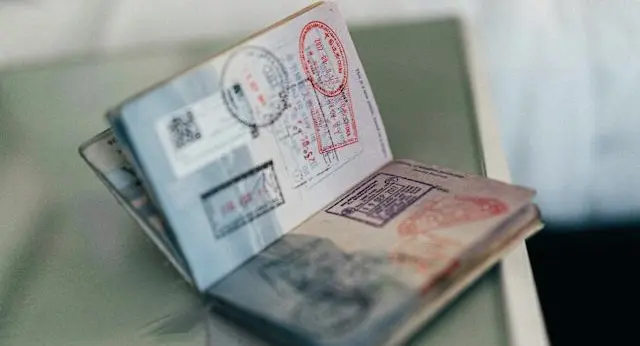10 Common Passport Mistakes That Could Wreck Your Summer Vacation

Planning a summer vacation is exciting, but a small passport mistake can turn your dream getaway into a logistical nightmare. From invalid documents to overlooked regulations, passport errors are among the top reasons travelers face delays, denials, or even canceled trips. To help you avoid these pitfalls, here are 10 common passport mistakes that could derail your summer vacation, along with practical tips to ensure smooth travels.
1. Not Checking Passport Validity
Many countries require your passport to be valid for at least six months beyond your planned departure date—a rule known as the “six-month validity rule.” If your passport is set to expire within this period, you could be denied boarding or entry. For example, destinations like Thailand, Indonesia, and most EU countries enforce this strictly. To avoid this, check your passport’s expiration date as soon as you start planning your trip. If it’s nearing the six-month mark, renew it immediately to prevent last-minute scrambles.
2. Ignoring Visa Requirements
Assuming you can enter a country visa-free can lead to being turned away at the border. Visa requirements vary widely depending on your nationality and destination. For instance, US citizens need a visa for countries like China or India, while UK citizens now face stricter EU entry rules post-Brexit. Research visa requirements well in advance through official government websites or embassies. Some visas take weeks to process, so apply early to avoid delays.
3. Traveling with a Damaged Passport
A passport with even minor damage—a torn page, water stains, or a loose cover—can be deemed invalid by airlines or immigration officials. Damaged passports are a common reason for entry denials, as officials may suspect tampering. Before your trip, inspect your passport carefully under good lighting. If you notice any issues, replace it through your country’s passport office to ensure it meets international standards.
4. Not Having Enough Blank Pages
Some countries require one or more blank passport pages for entry and exit stamps or visas. Popular destinations like South Africa or Turkey, for example, may need two blank pages. If your passport is running low, you could be refused entry or boarding. Check your passport’s blank pages before travel, and if you’re a frequent traveler, consider requesting a passport with extra pages when renewing.
5. Incorrect or Incomplete Passport Applications
When applying for or renewing a passport, simple errors can cause significant delays. Common mistakes include misspelled names, incorrect photo sizes, or missing supporting documents like birth certificates. For example, US passport photos must be 2×2 inches with a plain white background, and any deviation can lead to rejection. Double-check all application details, follow your country’s passport office guidelines precisely, and submit well in advance of your trip.
6. Not Applying Early Enough
Passport processing times can vary, often taking several weeks or even months during peak travel seasons like summer. In the US, standard processing can take 6-8 weeks, while expedited services still require 2-3 weeks. Delaying your application can leave you without a passport when your trip arrives. To stay safe, apply or renew at least three months before your departure date, and consider expedited services if time is tight.
7. Forgetting to Sign Your Passport
An unsigned passport is often considered invalid, as it lacks proof of ownership. Immigration officials or airlines may reject it, causing delays or denials. As soon as you receive your new passport, sign it in ink on the designated signature page. Ensure the signature matches your legal signature on other documents, like your driver’s license, to avoid discrepancies.
8. Not Carrying a Copy or Digital Backup
Losing your passport abroad is a major hassle, and without a backup, replacing it becomes even harder. A photocopy or digital scan can speed up the replacement process at an embassy or consulate. Before traveling, make a physical copy of your passport’s information page and store it separately from the original. Additionally, save a digital copy in a secure cloud service or email it to yourself for easy access.
9. Assuming Entry Rules Are the Same
Travel regulations can change, and assuming old rules still apply can lead to surprises. For example, post-Brexit, UK citizens now face stricter EU entry requirements, such as limited stays in the Schengen Area. Similarly, new systems like the EU’s ETIAS (expected to be fully implemented by 2025) may require pre-travel authorization for visa-exempt travelers. Always check current entry rules for your destination through official sources, such as government travel advisories or embassy websites.
10. Name Inconsistencies Across Documents
Your passport name must match your flight tickets, visas, and other travel documents exactly. Even minor discrepancies—like using a middle initial on one document but the full name on another—can lead to boarding denials. For example, if your passport lists “John Michael Smith” but your ticket says “John M. Smith,” you could be stopped. When booking travel, ensure all documents reflect the exact name as it appears in your passport, and double-check before departure.
How to Avoid These Mistakes
To ensure your summer vacation goes off without a hitch, take these proactive steps:
- Plan Ahead: Check your passport’s validity, blank pages, and condition at least three months before travel. Renew early if needed.
- Research Thoroughly: Use official government websites (e.g., travel.state.gov for US citizens or gov.uk for UK citizens) to confirm visa and entry requirements.
- Stay Organized: Keep physical and digital copies of your passport, and ensure all travel documents match your passport details.
- Consult Experts: If you’re unsure about specific rules, contact your airline, embassy, or a travel agent for clarification.
By avoiding these common passport mistakes, you can focus on enjoying your summer vacation rather than dealing with preventable travel disruptions. Safe travels!
Note: For the latest travel advisories or specific pricing on passport services, check official government websites or contact relevant authorities. For example, US citizens can visit https://travel.state.gov, and UK citizens can visit https://www.gov.uk/passport-advice.





